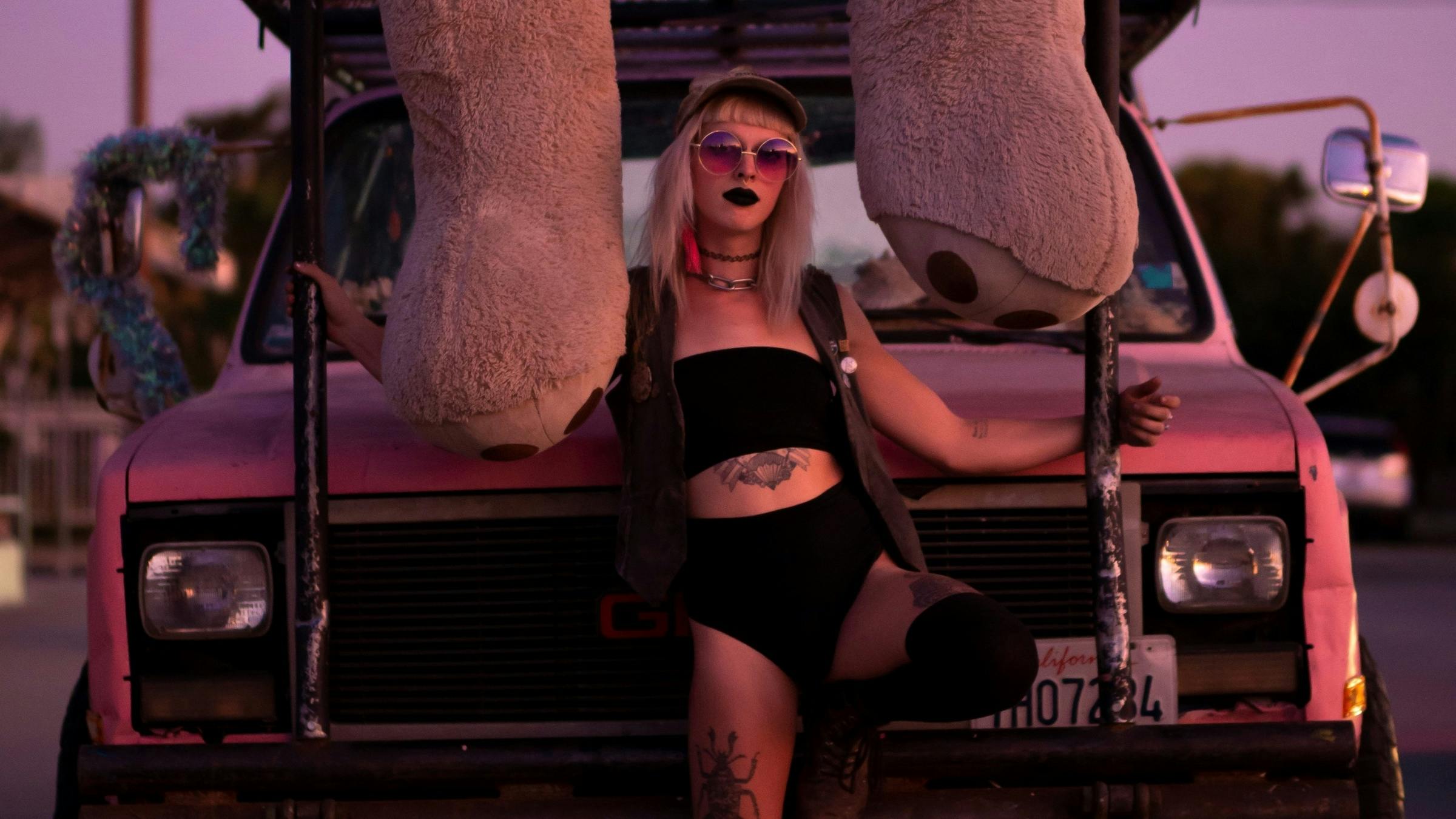Growing up in Oklahoma, did you know many people who embraced both outlaw culture and queer culture?
Tiffany Saint-Bunny, founder: "I grew up in a family of outlaws. My family are all a bunch of trainwreck shitheads, in and out of prison, cooking meth – not that I’m into that shit, it’s just how I grew up. I couldn’t really see myself fitting in to any kind of normal queer community at all. I was always really into Ministry, Marilyn Manson, Nine Inch Nails, Sepultura, and I couldn’t go to the club and hear that shit. So I think there was definitely a lot of crossover of growing up rough and digging that kind of music and being a homo, and I think a lot of people now are into that."
Rachel Saxer, editor: "I think [Trucksluts is] the crossover of outsider genres. You have queer people who are marginalized and left out and their stories are left out mainstream ideas. Bunny and I talk about this a lot -- mostly, outlaws are these romanticized representations of straight men and cowboy stuff. And for me, I grew up in Florida, and I didn’t grow up around a lot of explicitly queer people, but it was people having to chip away at who they are while finding each other, and as we got older we realized we were queer. There were a lot of adults we were around at the time who fit that bill, but it was very tongue in cheek.
"Taking this version of community and exaggerating it to create a vision of what we hope that everybody could experience, living very unapologetically, and getting imagery around that, is really fun for us and fun for people who, growing up in the south or the countryside, have to stay quiet for safety. An experience where they can have fun, and show off themselves, and show off their truck – that feels really good."
Tiffany: "I also want to say that right now, we have this huge cultural shift where we have actual fascists and shit calling themselves outlaws and infidels, and I think it’s fucking garbage. I don’t think those people are outlaws at all, I think they’re fucking bootlickers. I think part of Trucksluts was always taking that phoney machismo garbage and just showing a more authentic version of what it’s like to live on the fringes of society."
READ THIS: We need to talk about the queerness of Judas Priest
